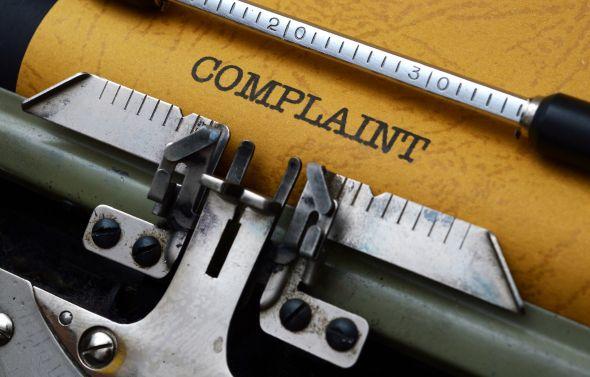How Can I Avoid Guest Complaints Caused by Listing Errors: Complete Host Guide 2025

Key Takeaways
Most guest complaints in 2025 come from misaligned expectations, not bad intentions. Accurate listings, up-to-date photos and consistent amenity details are the strongest defense against negative reviews.
Even small listing errors — outdated info, missing amenities or unclear check-in details — can trigger public complaints, refunds and lower visibility on Airbnb, Vrbo and Google.
Consistency across all OTAs is essential. Tools like channel managers help keep descriptions, photos and amenities synced to avoid confusion and mistrust.
Strong guest communication before, during and after the stay prevents misunderstandings and resolves issues early, reducing the odds of complaints escalating.
When mistakes happen, fast responses, empathy and clear solutions can turn a negative moment into a positive review and protect your reputation long term.
If you’ve ever received a bad review that made your stomach drop, you’re not alone. In today’s competitive vacation rental market, even the smallest listing error can lead to big problems: guest complaints, negative reviews and ultimately, lost bookings.
Whether it's missing amenities, outdated photos or confusing check-in instructions, many common guest complaints stem from misaligned expectations. And with Airbnb guest complaints and vacation rental guest issues now more visible than ever, thanks to social media and Google reviews, accuracy is no longer optional. It’s essential.
So, for hosts wondering, how can I avoid guest complaints caused by listing errors in 2025? The answer isn’t just attention to detail, it’s about working smarter. From keeping your listing descriptions consistent across OTAs to improving guest communication and response times, this guide will walk you through proven strategies to protect your rental property’s reputation and ensure a smoother guest experience every time.
We’ll also cover:
The most common complaints and how to avoid them
Real-life examples and a comparison table of listing errors
Tools like channel managers that help hosts maintain consistency
How to turn complaints into positive reviews
A quick FAQ section with actionable answers
Let’s explore how to reduce complaints and increase guest satisfaction, starting with the root of the problem: your listing.

Why Listing Errors Are a Big Deal in 2025
In 2025, guests aren’t just browsing, they’re researching. With AI-powered travel tools, smarter search engines and highly detailed Airbnb guest reviews, travelers are more informed (and more skeptical) than ever.
That means listing errors, even small ones, can quickly lead to guest complaints, dissatisfied guests and damaging negative reviews. Why? Because guests today expect transparency, speed and accuracy. If your vacation rental property doesn't match its description, guests are far more likely to voice their frustration publicly.
Here’s why it matters more than ever:
Search engines prioritize guest experience: Platforms like Google are using LLMs (Large Language Models) to evaluate content quality. If your listing is misleading or inconsistent across OTAs, it can affect your visibility and your bookings.
Guests are comparing listings across platforms: If your rental property looks different on Airbnb than it does on Vrbo or Booking.com, it may create doubt or confusion. That’s a quick path to guest distrust.
One complaint can impact many guests: Today’s guest reviews influence tomorrow’s bookings. A single bad review can affect how future guests perceive your property even if it was caused by a minor oversight.
What used to be considered “small mistakes” (like forgetting to update your amenity list or skipping a photo update after renovations) now have a much bigger impact. The margin for error is shrinking and the cost of inaccuracy is growing.
Luckily, avoiding these problems isn’t about perfection. It’s about awareness, transparency and using the right tools to keep your listings aligned with guest expectations.
Stats & Data That Highlight the Connection Between Listing Errors and Guest Complaints
Statistic | What it tells you | Source |
~39% of STR guests report poor internet connectivity as a complaint. | Misrepresenting or downplaying connectivity in a listing can be a source of dissatisfaction. | ConsumerAffairs “Short-term rental statistics 2025” ConsumerAffairs |
~38% report poor property maintenance (fixtures/appliances, etc.) as a complaint. | When a listing claims amenities or conditions that aren’t delivered, it becomes a cause of complaint. | ConsumerAffairs “Short-term rental statistics 2025” ConsumerAffairs |
~33% report lack of cleanliness (e.g., dirty, unpleasant) among top complaints. | If the listing says “professionally cleaned” or “clean,” but the guests experience otherwise, complaints follow. | ConsumerAffairs “Short-term rental statistics 2025” ConsumerAffairs |
~23% report poor parking or difficulties with parking. | If a listing promises “ample parking” but reality differs, it leads to negative reviews. | ConsumerAffairs “Short-term rental statistics 2025” ConsumerAffairs |
~23% report “difficult landlords” (host-related issues) as a complaint. | While not always listing errors, miscommunication or a lack of accurate information can amplify these issues. | ConsumerAffairs “Short-term rental statistics 2025” ConsumerAffairs |
Over 90% of reviews in multiple U.S. regions are positive, but sentiment quality matters more than quantity. | Even with mostly positive reviews, negative or inaccurate claims (when they occur) can damage trust/acceptance rates. | “Sentiment Analysis of Airbnb Reviews …” (2025) arXiv |
Longer listing summaries correlate positively with occupancy rates, but more positive sentiment in the summary doesn’t necessarily. | What this means is that detailed, accurate descriptions are valuable (they help set correct expectations). | “The Impact of an Airbnb Host’s Listing Description ‘Sentiment’ and Length on Occupancy Rates” arXiv |
Most Common Guest Complaints Caused by Listing Errors
Not all guest complaints come from noisy neighbors or unexpected weather. In fact, some of the most common complaints are completely preventable and they start with inaccurate or misleading listings.
When vacation rental guests arrive to find that the property doesn’t match what they booked, it sets the tone for frustration, bad reviews and unhappy stays. Worse, even one frustrated guest can damage your reputation with negative comments that future travelers see before booking.
Here are the most frequent listing-related issues that lead to complaints and how to prevent them.
Some common listing errors and their impact on guest experience
Listing error | Example of a guest complaint | Impact on guest satisfaction | How to prevent guest complaints |
Outdated or missing amenity details (e.g., Wi-Fi doesn’t work properly, no air conditioning) | “The property didn’t have what was promised.” | Negative reviews, refund requests, poor guest experience | Regularly audit your amenities and test them before each new guest’s stay |
Misleading or overly edited photos | “The property looked nothing like the pictures.” | Loss of trust, bad reviews, fewer bookings | Use accurate, recent, unfiltered photos of your rental property |
Confusing or incorrect check-in instructions | “We couldn’t figure out how to check in.” | Late-night calls, guest frustration, negative first impression | Automate and test your check-in process with clear, step-by-step instructions |
Undisclosed maintenance issues (e.g., broken appliances, leaks or noise) | “The listing left out important details.” | Dissatisfied guests, complaint escalation, poor reviews | Proactive inspections, timely repairs and transparent communication |
Inconsistent information across OTAs | “Details were different on Airbnb vs. Vrbo.” | Guest distrust, negative comments, canceled bookings | Use a channel manager like Hostaway to sync listings across platforms |
The good news? Most of these guest issues are completely within a host’s control. By keeping your listing descriptions transparent and up to date, you’ll prevent unhappy guests, increase guest satisfaction and encourage positive reviews that attract future guests.
How to Prevent Guest Complaints with Clear, Honest Listings
The best way to handle guest complaints is to prevent them before they happen. Most common complaints from vacation rental guests come down to one thing: expectations not matching reality.
That’s why writing clear, accurate and transparent listing descriptions is key. When your property matches what you’ve promised online, you build trust, deliver a better guest experience and increase the likelihood of positive reviews and repeat business.
Tips for writing honest listings
Audit your listing regularly: Review your amenities, photos and descriptions every few months or after any changes to your property.
Use accurate language: Avoid exaggerating. Instead of saying “luxury kitchen,” describe the actual features (e.g., “stainless steel appliances, granite countertops”).
Update after maintenance: If you’ve repaired or replaced an item, make sure the listing reflects it. The same goes for amenities that no longer work properly.
Think like your guests: Ask yourself what future guests would want to know before booking. Small details (like parking info or Wi-Fi speed) can make a big difference.
Test your check-in process: Walk through it yourself or have a friend try it to ensure instructions are clear.
Airbnb’s Stance on Listing Accuracy (and Why It Matters)
Accuracy isn’t just about keeping guests happy, it’s also about staying in good standing with Airbnb. The platform has clear standards around listing accuracy and repeated issues can lead to penalties such as lower visibility in search results, reduced booking rates or even suspension of your account.
When a guest complains to Airbnb about something that was misrepresented in your listing, the platform typically sides with the guest. That can mean forced refunds, removal of positive reviews or damage to your profile’s overall rating. Simply put, a sloppy or inaccurate listing can cost you more than one bad review, it can hurt your long-term performance.
On the flip side, accurate listings actually protect you. If something is clearly mentioned in your listing description, say, “no air conditioning” or “street-facing room may not be a quieter room,” Airbnb generally won’t penalize you if a guest raises it as an issue later. In these cases, you have an “out” because you set expectations clearly in advance.
This is why precision is your best friend:
It reduces the risk of guest complaints in the first place.
It gives you a defense if a guest’s point of complaint is already documented in your listing.
It signals to Airbnb that you’re a reliable host who values accuracy and customer satisfaction.
Being proactive about accuracy isn’t just about avoiding bad reviews, it’s about protecting your reputation, your revenue and your standing with Airbnb and most other OTAs.

Complaint Management: What to Do When a Guest Complains
Even the best hosts will face complaints at some point. The difference between losing a guest forever and gaining a loyal promoter comes down to how you handle the situation. Effective complaint management is one of the most important skills in handling guest complaints and protecting your reputation.
When a guest complains, they want to feel heard and respected. Ignoring the problem or offering poor service will almost guarantee a bad review and might influence how other guests view your property online. On the other hand, a thoughtful response can turn a difficult situation into a positive outcome and even encourage future stays.
Steps for handling guest complaints effectively
Take immediate action
Don’t delay. Guests appreciate fast response times, especially when the issue is disrupting their stay. Sometimes, even acknowledging the complaint right away shows that you take their concerns seriously.
Listen from the guest’s point of view
Step back and see the issue through the guest’s point. What may seem minor to you might be the primary driver of their frustration. For example, slow Wi-Fi could feel like a dealbreaker for a business traveler.
Offer solutions, not excuses
Whenever possible, provide a tangible fix. That could be repairing the issue immediately, moving the guest to a quieter room or arranging a temporary solution. In cases where a fix isn’t possible, consider a gesture of goodwill, like a partial refund or even a free meal at a local restaurant.
Follow up and confirm satisfaction
Don’t assume the issue is resolved. Implement clear follow-up procedures to check whether the guest is happy with the solution. Guests feel valued when you ask if everything is working now and this step alone can prevent unresolved issues from showing up in guest reviews.
Document and train staff
Share lessons learned with your staff members or co-hosts. Regularly train staff on best practices for handling guest complaints so everyone knows how to respond consistently and professionally.
Why it matters
Even one guest can leave a review that impacts your bookings for months.
Great complaint handling boosts customer satisfaction, which leads to more positive reviews and stronger word of mouth.
Guests who feel taken care of are more likely to forgive mistakes and book again in the future.
In short, while complaints are never fun, the way you handle guest complaints can make or break your hosting success. Done well, complaint management not only solves problems it builds trust with your current guests and reassures your potential guests that you’ll take care of them, too.
The Role of Guest Communication in Preventing Listing-Related Complaints
One of the easiest ways to prevent guest complaints before they happen is through clear, proactive communication. Many misunderstandings come from assumptions or lack of details, not bad intentions. Strong guest communication builds trust, manages expectations and reduces the risk of disappointment.
When communication is done well, guests feel reassured, cared for and confident about their stay. Done poorly, it can lead to confusion, frustration and complaints that could have been avoided.
How communication prevents complaints
Answer clarifying questions early
Many potential guests will have specific concerns before booking parking, pet policies or Wi-Fi reliability. By inviting and answering these clarifying questions upfront, you minimize surprises and avoid common guest complaints later.
Set expectations before arrival
Provide detailed check-in instructions, directions and house rules in advance. This reduces stress for both you and the guest. When expectations are clear, complaints about missing details or confusion are much less likely.
Maintain fast and friendly response times
Quick replies show that you value your guests. Whether it’s a pre-booking inquiry or a mid-stay concern, strong communication is a cornerstone of handling guest complaints effectively.
Check-in during the guest’s stay
A short message after the first night can go a long way. Ask if everything is working properly and if they’re comfortable. This proactive touchpoint shows care, helps ensure satisfaction and allows you to solve problems before they escalate.
Use follow-up procedures after check-out
After a guest leaves, send a polite thank-you note and invite feedback. Not only does this help catch unresolved issues, but it also encourages positive reviews that boost your reputation with other guests.
Why guest communication matters
Guests who feel heard are less likely to leave a bad review, even if issues occur.
Clear communication helps manage guest expectations and avoids misalignment.
Good communication improves customer satisfaction and increases the chances of future stays.
Strong guest service isn’t just about amenities, it’s about the relationship you build with your guests. By making communication a priority, you prevent complaints, improve the overall guest experience and turn satisfied travelers into repeat visitors.

Clear Listings, Happy Guests
Avoiding guest complaints isn’t about perfection, it’s about precision. Clear photos, honest listing descriptions and consistent details across OTAs are the foundation of a smooth guest experience. When you get these basics right, your guests won’t just avoid frustration, they’ll leave glowing guest reviews that attract even more potential guests.
In 2025, the hosts who succeed are the ones who see transparency as their strongest tool. By staying consistent, proactive and attentive, you’ll prevent complaints before they ever happen and build a reputation for trustworthiness that sets you apart.
Because at the end of the day, accurate listings aren’t just about avoiding complaints, they’re about ensuring customer satisfaction, earning repeat business and creating a future filled with happy guests and 5-star stays.
Frequently Asked Questions About Listing Accuracy and Guest Complaints
1. How does Airbnb specifically penalize inaccurate listings (visibility, refunds, suspensions) and what triggers those actions?
Airbnb monitors listing accuracy closely. Repeated guest complaints about misleading descriptions or missing amenities can trigger penalties. These may include lower search visibility, forced refunds, account warnings or even temporary suspension. Triggers often include misrepresented amenities (like “Wi-Fi” that doesn’t work properly), misleading photos or undisclosed issues such as noise or accessibility barriers.
2. Can I get a negative review removed if the guest ignored information that was accurately stated in the listing or house rules?
In some cases, yes. Airbnb and other OTAs may remove a review if it’s proven to be irrelevant, misleading or in violation of review policies. However, removal is rare. Your best defense is proactive clarity: make sure important details are highly visible in your listing and in pre-stay messages, so guest reviews reflect fair expectations.
3. What’s the best way to document listing accuracy (photos, time-stamped messages, maintenance logs) for dispute resolution?
Create a simple documentation system. Maintain a folder with:
Dated photos of the property and amenities
Copies of your active listing descriptions
Screenshots of OTA listing pages
Records of maintenance visits and service checks
Message logs where guests asked clarifying questions and received answers
This archive shows you acted in good faith and provides a defense if disputes escalate.
4. How quickly should I update all OTAs after a change to avoid “misrepresentation,” and what sync delays are typical with channel managers?
Update your listings immediately after a change. OTAs expect accuracy in real time and delays can result in guest complaints. A channel manager typically syncs updates within minutes, but some platforms may take a few hours to refresh. To stay safe, double-check all OTAs after any major update.
5. What’s the right threshold for compensation (refund, discount, free meal, late check-out) when the listing is accurate but guests are still unhappy?
When a listing is accurate but dissatisfaction still arises, think about goodwill vs. cost. Minor inconveniences might merit a small perk like a free meal voucher or late check-out. Larger disruptions (like ongoing noise) may require a partial refund. The goal isn’t to “pay off” guests but to show empathy and ensure satisfaction, which can turn a potential bad review into a positive outcome.
6. Can AI writing tools accidentally create inaccuracies (hyperbole, implied promises)? How do I safeguard against that?
Yes, AI tools can sometimes add exaggerations (“luxury finishes,” “perfectly quiet neighborhood”) that don’t match reality. Always fact-check AI-generated content against your property. Avoid adjectives that imply guarantees and stick to verifiable details. AI is great for drafting, but your judgment ensures accuracy.
7. How can I use guest messaging templates to proactively answer clarifying questions (parking, noise, Wi-Fi, check-in, climate control)?
Prepare templated messages that address the most common clarifying questions before guests even ask:
Parking (dimensions, street rules, EV chargers)
Wi-Fi (speed test results, router location)
Noise expectations (street-facing vs. quieter room)
Check-in details (step-by-step instructions)
Climate control (AC/heating type, quirks)
Sending these proactively makes guests feel informed and reduces misunderstandings.
8. Are there best practices for listing “quirks” (older home, low ceilings, narrow stairs) that reduce guest complaints without scaring bookings?
Yes, frame quirks honestly but positively. For example: “As a historic home, some doorways are lower than modern builds, guests taller than 6’2” should take care.” This sets expectations without discouraging potential guests. Guests appreciate transparency and it builds trust instead of inviting guest complains later.
9. What’s the right way to note security cameras and smart devices to comply with OTA policies and privacy laws?
Always disclose cameras and smart devices clearly in your listing description. State their location (e.g., exterior only, no interior coverage), purpose (security, noise monitoring) and how they operate. Hidden or undisclosed devices are prohibited and can lead to suspension. Transparency ensures compliance and reassures other guests.
10. If one guest makes a false claim, how do I respond publicly in guest reviews without violating platform policies?
Stay professional. Acknowledge their experience, briefly state the facts and avoid emotional language. For example: “We’re sorry this guest felt disappointed. Our listing does state that the property is street-facing and we encourage all guests to review details before booking.” This shows potential guests you’re transparent while staying within OTA review guidelines.
11. What metrics should I track monthly to detect accuracy-related issues early (keywords in reviews, message themes, refund reasons)?
Track these regularly:
Keywords in guest reviews (“Wi-Fi,” “check-in,�” “parking,” “cleanliness”)
Recurring guest issues raised in messages
Refund/compensation reasons logged
Common themes in unresolved issues or guest communication
“Clarifying questions” guests ask before booking
Patterns reveal where expectations aren’t being met, helping you update your listing and improve customer satisfaction before small problems turn into bigger complaints.
Ready to find out how Hostaway can transform your business?
